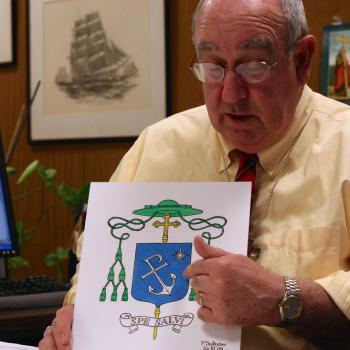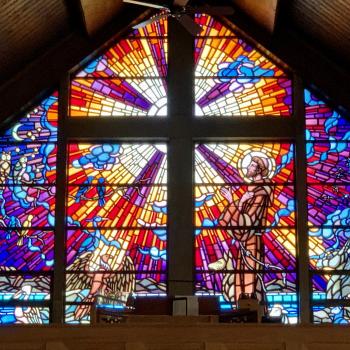Someone posted this item on Facebook earlier today:
The 16 members of the Diocese of Salt Lake City’s permanent deacon formation class have entered their Candidate Practicum period, for which they have been temporarily assigned to serve in parishes other than their own.
The temporary assignments, which began this month, will last for about eight months. The men, who are all Spanish-speaking, began the formation class two years ago and are scheduled to be ordained in 2017.
“This past year we wanted them to have opportunities to become more familiar with certain situations: For example, how to set up for a baptism,” or how to assist a priest, said Deacon Drew Petersen, who oversees the diocese’s Permanent Deacon Program. “That is the level of practical experience that we wanted them to have.”
The temporary assignments are intended to help the men become acclimated to parishes other than their own, and to gain practical experience, Deacon Petersen said. “They, most likely, will be changing parishes throughout the term of their diaconate … so they are now assigned to parishes where there will be a new experience for them.”
As permanent deacons, the men will minister where the bishop assigns them, assisting the pastors in ministering to the parishioners, so “they have to know and learn how to adapt to a different environment,” said Deacon Petersen.
The pastors of the parishes receiving the candidates have been asked to help them become more acquainted with the various sacraments that they would be administrating when they become permanent deacons, Deacon Petersen said.
Among the ministries that permanent deacons are called to are counseling a person pastorally, celebrating the Sacrament of Baptism and officiating at funerals and marriages, as long as the pastor has delegated this authority.
The assignments to the temporary parishes came after an assessment that the diaconal candidates are constantly going through.
“What we try to do is to assign them to parishes where we think they are going to have the best opportunity to grow additionally in their ministry,” said Deacon Petersen, who also considered the input of the pastors of the things that they thought the candidates were still lacking.
“Most of the candidates are really excited about their new temporary assignments. It is a good learning experience, having gone through it by myself,” said Deacon Petersen.
The person who posted this wondered what I thought of it.
While we don’t do anything quite like this in Brooklyn, I think it’s a superb idea.
First, it takes the deacon candidate out of his comfort zone, and places him in a parochial environment with a new pastor and new parishioners. In practical ways, this also seems also a good way to “learn the ropes.” When I was ordained, it was more or less expected that every pastor would break in his new deacon and you would learn by doing. That’s all well and good, but I think this approach is more challenging and demanding.
Secondly, it makes him accountable to someone he may not know, and forces him to adapt to circumstances and pastoral practices (and liturgical customs) that might be new to him. Just learning your way around a different sanctuary and discovering how other parishes do things on any given Sunday can be an eye-opener. It’s a big Church. It’s useful to experience that first-hand.
Finally, it prepares the candidate for the reality of having an assignment other than his home parish. In Brooklyn, most deacons serve where they live, literally, although with the understanding that they might be assigned elsewhere, as needed. The kind of arrangement in Salt Lake City, however, makes clear that the deacon is really an arm of the bishop—more than merely a helper to his own pastor—and helps both the candidate and the people understand the deacon’s role.
Until recently, my diocese included a similar “pastoral year” in the formation of seminarians, usually just before they were ordained to the diaconate. The seminarian we had at my parish has told me he found the experience both illuminating and invaluable, preparing him in some unexpected ways for the realities of parochial life.















